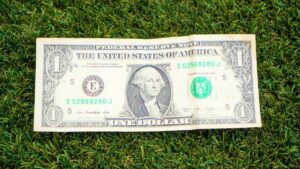Several entities and individuals can make money from the artificial grass industry. Here are some key stakeholders who typically profit from the artificial grass market:
Manufacturers:
- The primary players in the artificial grass industry are manufacturing companies. These companies produce synthetic turf using various materials such as polyethylene or polypropylene. They sell the artificial grass to distributors, retailers, or directly to consumers.
Distributors and Retailers:
- Distributors and retailers purchase artificial grass from manufacturers and sell it to businesses or individuals. They often carry a range of artificial grass products, offering different styles, thicknesses, and specifications to meet diverse customer needs.
Installers and Contractors:
- Professionals who specialize in the installation of artificial grass make money by providing services to homeowners, businesses, sports facilities, and other clients. Installation requires expertise to ensure proper fitting and longevity of the artificial turf.
Landscaping Companies:
- Landscaping companies often incorporate artificial grass installation as part of their services. They generate revenue by offering a comprehensive range of landscaping solutions, including the installation and maintenance of synthetic turf.
Sports Facility Owners:
- Sports facility owners, such as those managing soccer fields, golf courses, and other sports venues, can benefit from artificial grass. It provides a durable and low-maintenance playing surface, and these facilities may charge fees for usage, generating revenue.
Homeowners and Property Owners:
- Individuals who invest in artificial grass for their lawns, gardens, or residential landscapes make a one-time purchase but often save money in the long run due to reduced maintenance costs. Additionally, the improved aesthetics and increased property value can be considered a form of financial gain.
Event Planners:
- Event planners may use artificial grass for temporary outdoor events, creating a green and visually appealing setting. They generate revenue by offering event planning services that include the use of artificial grass for various occasions.
Municipalities and Government Entities:
- Local governments may invest in artificial grass for public spaces such as parks, playgrounds, and recreational areas. This helps reduce maintenance costs and ensures that the public has access to green spaces year-round.
Schools and Educational Institutions:
- Schools and universities may use artificial grass for sports fields, playgrounds, or landscaping. The long-term savings on maintenance costs and the durability of artificial turf can be financially advantageous for educational institutions.
Environmental Services Companies:
- Companies specializing in environmental services, such as those involved in water conservation or sustainable landscaping, may promote and profit from the use of artificial grass as a water-saving and eco-friendly alternative to natural grass.
Accessories and Maintenance Product Suppliers:
- Companies that provide accessories like infill materials, adhesives, and maintenance products for artificial grass can also make money by catering to the ongoing needs of artificial grass owners.
In summary, the artificial grass industry involves various stakeholders, from manufacturers and distributors to installers and end-users, each playing a role in the supply chain and contributing to the economic ecosystem surrounding synthetic turf.



